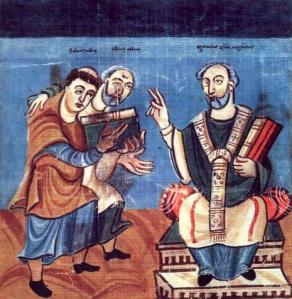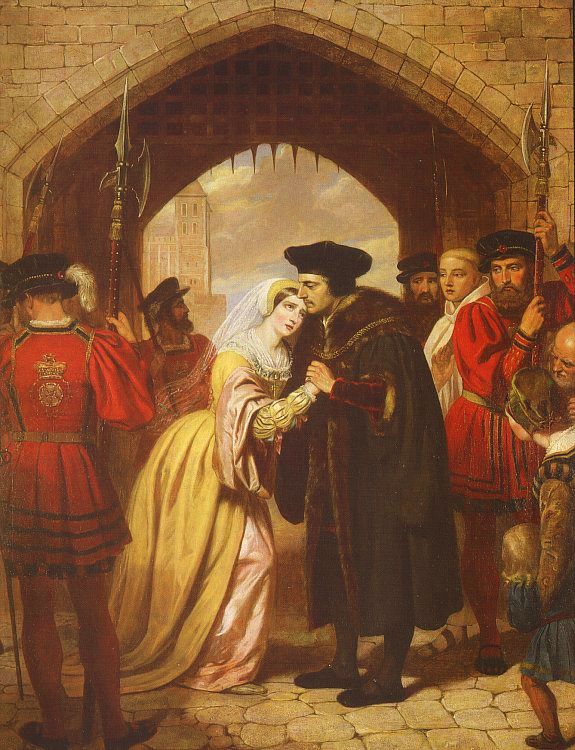Night Office
First Reading Judges 13:1-25
Second Reading From the commentary by Rabanus Maurus
__________________________________________________________________
THE MYSTERY OF A NAME
W.F. Adeney — Pulpit Commentary: Homilies
W.F. Adeney — Pulpit Commentary: Homilies
Judges 13:17, 18And Manoah said to the angel of the LORD, What is your name, that when your sayings come to pass we may do you honor?…
Names denote persons and describe characters. The nameless one wraps both his individuality and his nature in mystery. Naturally Manoah, like Jacob, desires to solve such a mystery (Genesis 32:29), and in response to this wish, unlike "the traveller unknown," the angel reveals a name, though one of partial mystery.
I. MANOAH'S QUESTION (see ver. 17).
1. Manoah does not know that his visitor is an angel of the Lord (ver. 16). Divine visitations are not always recognised. The true nature of Christ was unknown to most of his contemporaries. We cannot always trace the hand of God in his providential action. Heaven is about us unnoticed; unseen ministries attend our lives; God is nearer to us than we suspect.
2. Manoah desires to know the name of his mysterious visitor -
(1) from natural curiosity,
(2) from a desire to strengthen his faith in the message of the unknown,
(3) from a wish to give him thanks when his promise should be fulfilled.
The thirst to solve the strange questions which surround our spiritual life is natural, and not inconsistent with humility nor with faith. It would be better if we were more anxious to inquire for indications of God and of his character in the experience of life.
II. THE ANGEL'S REPLY (see ver. 18).
1. He begins his reply with a question. We should not assail heaven with unjustifiable prayers, but should be ready to give a reason for our petitions. Revelation is not intended to quench human thought, but to stimulate it. Every new voice from heaven, while it answers some questions, starts new questions.
2. The angel implies that Manoah's request was needless, either
(1) because he ought to have recognised the nature of his visitant from the character of his message and conduct, or
(2) because it was more important to consider the meaning of the message than to inquire into the nature of the messenger. We sometimes pray for more light when we only need better eyes to use the light we have; not a fresh revelation, but discernment, reflection, spiritual feeling to appreciate the revelation already received. God's truth is more important than the person of the prophet, apostle, or angel who brings it to us.
3. The angel gives Manoah a name. He is "Wonderful." This was a partial answer to Manoah's question.
(1) It carried his thought to God, who is the supreme mystery, and suggested the greatness, the wonder, the awe of all that pertained to him. Thus it was a revelation of the Divine.
(2) Nevertheless the name was but a partial explanation, as its very meaning suggested the unknown. The deepest questions cannot be solved on earth. But it matters little that the rays of revelation seem to melt into the darkness of the Infinite if only they shine bright and clear on our path of duty. - A.
Parallel Verses
KJV: And Manoah said unto the angel of the LORD, What is thy name, that when thy sayings come to pass we may do thee honour?WEB: Manoah said to the angel of Yahweh, "What is your name, that when your words happen, we may honor you?"
http://ibiblestudies.com/judges/13-17.htm
&&&&&&&&&&&&&&&&&&&&
Rabanus Maurus: Christ, the Fair Glory of the Holy Angels
Saturday, Sep 29 2012
Early Latin Monks and MONASTIC and PATRISTIC and Rabanus Maurus angels, Christ, glory, peace,saints, victory, Virgin Mary, worship 8:38 am
 Christ, the fair glory of the holy angels,
Christ, the fair glory of the holy angels,Maker of all things, ruler of all nations,
Grant of thy mercy unto us thy servants
Steps up to heaven.
Send thine archangel Michael to our succour;
Peacemaker blessed, may he banish from us
Striving and hatred, so that for the peaceful
All things may prosper.
Peacemaker blessed, may he banish from us
Striving and hatred, so that for the peaceful
All things may prosper.
Send thine archangel Gabriel, the mighty;
Herald of heaven, may he, from us mortals,
Drive every evil, watching o’er the temples
Where thou art worshiped.
Herald of heaven, may he, from us mortals,
Drive every evil, watching o’er the temples
Where thou art worshiped.
Send from the heavens Raphael thine archangel,
Health-bringer blessed, aiding every sufferer,
That, in thy service, he may wisely guide us,
Healing and blessing.
Health-bringer blessed, aiding every sufferer,
That, in thy service, he may wisely guide us,
Healing and blessing.
May the blest mother of our God and Saviour,
May the celestial companies of angels,
May the assembly of the saints in heaven
Hhelp us to praise thee.
May the celestial companies of angels,
May the assembly of the saints in heaven
Hhelp us to praise thee.
Father Almighty, Son, and Holy Spirit,
God ever blessèd, hear our thankful praises;
Thine is the glory which from all creation
Ever ascendeth.
God ever blessèd, hear our thankful praises;
Thine is the glory which from all creation
Ever ascendeth.
Rabanus Maurus (c.780-856), translated by the compilers of Hymns Ancient and Modern@ Hymnary.org.
Minds of All Believers with Heavenly Light
Tuesday, Jun 21 2011
Early Latin Monks and MONASTIC and PATRISTIC and Rabanus Maurus Christ, Christ's passion, church,kingdom of God, light, pasc, redemption, temple, Virgin Mary 7:25 am
Let me summarise briefly everything that is said about Samson.
Samson, who in his day was a Nazirite of the Lord, is allegorically a type of Christ; first, because his birth was foretold by an angel;
secondly, because he was called a Nazirite and delivered Israel from its foes;
and, finally, because he overthrew their Temple, causing many thousands of people who had mocked him to perish.
As the birth of Samson was foretold by an angel, so the Lord’s bodily birth was foretold by the Prophets, as well as by the angel who said to Mary:
Hail, Mary, full of grace; you have conceived in your womb and will bear a son, and you shall call him ‘Emmanuel’, for he shall save his people from their sins.
The name ‘Samson’ means ‘sun’.
But our Redeemer too is called ‘sun’; listen to how the Prophet thus names the Lord Jesus: The sun of righteousness shall rise over you, and there will be healing in its wings.
The Lord Jesus is truly the Sun of Righteousness, for he enlightens the minds of all believers with heavenly light.
He is the true Nazirite and Holy one of God, and it is only by analogy with him that this other man was called a Nazirite.
When Samson was travelling to the wedding he encountered a roaring lion. As he travelled to a foreign people in quest of a wife, a lion came out to meet him and he killed it.
Who should we see foreshadowed by Samson if not Christ who, when about to gather the Church from among the Gentiles, said: Rejoice, for I have overcome the world.
What does it mean that Samson took honey from the mouth of the slain lion except that, as we ourselves see, the nations of the earthly kingdom who formerly raged against Christ have lost their savagery and, moved by the sweetness of the Gospel preaching make their votive offerings?
Also significant is what we see in Samson’s own person: he killed few in his lifetime, but countless were the enemies he slew when he died by destroying the Temple.
So too the Lord in his lifetime rescued few from the arrogance of unbelief, but he rescued many when the temple of his body was destroyed;
and those Gentiles who were arrogant and whom he bore with in his lifetime, he laid low by his death.
Rabanus Maurus (c.780-856): Commentary on Judges, 2.20 (PL 108:1198); from the Monastic Office of Vigils, Sunday of Week 12 in Ordinary Time, Year1


























